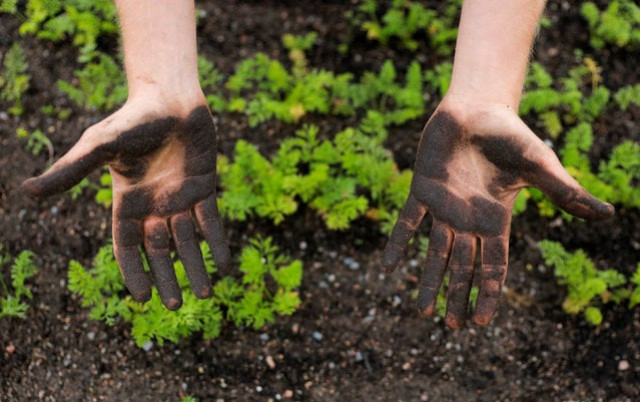Organic compost: modern way to retain soil fertility
Agriculture expert says compost is easy to formulate without cost

PHOTO: REUTERS
Usually chemical based composts and fertilisers are designed to quickly release their contents into the soil therefore making them rapidly available to plants.
However, they quickly wash out of the soil during watering and rain and while the plants may gain a little immediate benefit, it is soon gone.
Sustainable farming: UAF aims to revolutionise agriculture with innovation
The use of homemade, organic compost will empirically play an important role in cultivation of various crops. Vegetables, fruits, wheat, rice and other upland crop production could be enhanced after utilisation of organic compost as compared to the use of chemical fertilizer.
An official of the agriculture department said previous surveys have shown that organic compost was beneficial in cultivating crops and vegetables as it increases agricultural and horticultural traits of fruits and vegetables as well as enhances the soil ability.
He said the use of organic compost along with chemical fertilizers enhance soil’s ability up to 30%.
He maintained that compost was much easy to formulate without cost. He added that compost was a key ingredient in organic farming as the process of composting simply requires making a heap of wet organic matter known as green waste (leaves, food waste). He urged farmers to contact with agriculture officers concerned for learning benefits of compost and its formulation method.
Fusion of technology, agriculture essential for quantum growth
Formulating organic compost is a modern, sustaining & close to nature system, which maintains the long-term fertility of the soil and uses less of the world’s finite resources to produce high quality nutritious food grains, vegetables and fruits.
Organic techniques have been developed from an understanding and research into soil science, crop breeding and ecology. The maintenance of soil fertility relies principally on the use of legumes, crop rotation, the application of composted animal manures and ground rock minerals.
Published in The Express Tribune, March 9th, 2017.


















COMMENTS
Comments are moderated and generally will be posted if they are on-topic and not abusive.
For more information, please see our Comments FAQ